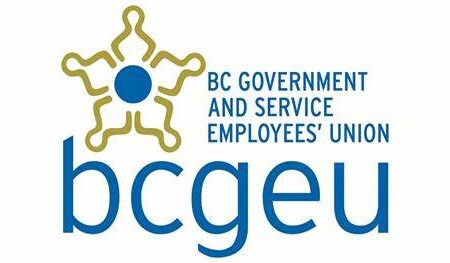EDITORIAL: SOS about crime?
A media release arrived in my inbox, to publicize the message of a coalition of communities and businesses urging government to take more effective action to reduce crime. The coalition calls itself “Save Our Streets” — SOS.
Their message is a call “for all levels of government to coordinate their efforts and put an end to the unprecedented wave of theft, property crime and street violence being seen on the streets and at places of business in communities around B.C.”
In our Kootenay region, Tanya Finley is Chair of the Nelson, Cranbrook and Trail N2 concerned citizens group. “We decided to join the SOS Save Our Streets coalition to join with other communities throughout B.C. in gaining the attention of governments over the desperate situation with crime and violence we are seeing in our communities,” she stated. “We need a results-driven, comprehensive and intergovernmental coordinated plan that addresses many contributing issues including drug addiction, the drug trade, mental health challenges, policing, judicial reform and homelessness.”
Theressa Logan, Executive Director of the Sechelt Downtown Business Association said, “We are working hard locally, but we’ve also decided to join SOS because a louder chorus of voices is harder to ignore and will demonstrate that the issues are province-wide and urgent. We need to see results from our government leaders who are the ones able to make the necessary policy changes to address these issues.”
This begs the question of what policy changes would address these issues.
What could help reduce homelessness, crime, drug abuse, and mental health challenges? What is it in our society that seems to be creating more of these problems?
Inequality?
In Canada, the richest 20% of people hold 67.8% of the “net worth” — wealth, while the poorest 40% hold less than 3% of the wealth – according to a Statistics Canada report on the second quarter of 2023. That’s quite a difference.
And according to another analysis, released on January 2, 2024 by the Canadian Centre of Policy Alternatives (CCPA),
Canada’s 100 highest-paid CEOs again broke every compensation record on the books in 2022.
In Canada’s New Gilded Age: CEO Pay in 2022, CCPA Senior Economist David Macdonald shows that those 100 CEOs, who are overwhelmingly male, got paid a whopping average of $14.9 million in 2022. This amount surpasses their previously record-breaking pay of $14.3 million in 2021 and sets a new all-time high in our data series.
They now make 246 times more than the average worker wage in Canada, besting even their previous high of 243 times the average worker wage in 2021.
“The top CEOs make $7,162 an hour and so it only takes a little over eight hours to make the $60,607 annual pay of the average worker. If we say that both get paid vacations, like New Year’s Day, then by Tuesday, January 2, 2024, at 9:27 a.m. those CEOs will have already gotten what the average worker makes in a year,” says Macdonald. “This is truly the hallmark of a new Gilded Age.”
And our income tax system
Besides the wealth accumulation and the income disparities, there is our tax system which favours the wealthy, and has favoured them more as the decades have rolled by – helping them keep what they have and accumulate ever more. In 2020, I wrote this editorial (click the link to read it) on taxes – it explains how some of the loopholes work to help the rich get richer. If any of those loopholes have been closed, let’s celebrate a small strengthening of the fabric of our society – which seems to me to need a deal of mending — patching and darning — as well as strengthening.
Would Universal Basic Income help?
Some behaviour characterized as “mental illness” is arguably a sane, if not entirely reasonable, response to intolerable stress. How many readers have experienced the stress of losing a job – being made redundant — while needing to support family members, or the stress of losing a home because of the loss of income and resulting inability to make rent or mortgage payments? How many have had to sleep rough or use our local food bank? How many have had relationships fail because of financial issues? Regardless, maybe curb those self-righteous judgey feelings about those who have.
Universal Basic Income is a contentious subject, and there are several different options for implementing some version of it. Wikipedia has a discussion of it, and lists some trial projects, at this link. Finland’s two-year trial is discussed here in more detail than in the Wikipedia article.
Could it relieve some of the stresses and desperation that fuel some of our crime, homelessness, and drug abuse? I’m in no position to assess that, but the high economic cost of these social ills should be weighed when people are concerned about the high cost of any basic income program.
To sum up …
Any truly effective steps our governments could take to reduce our shameful inequality of accumulated wealth, and income disparity, would probably help significantly to reduce homelessness and crime. Eliminating income tax deductions that favour only the wealthy and do not benefit low-income people at all would be a modest beginning.



























Comments